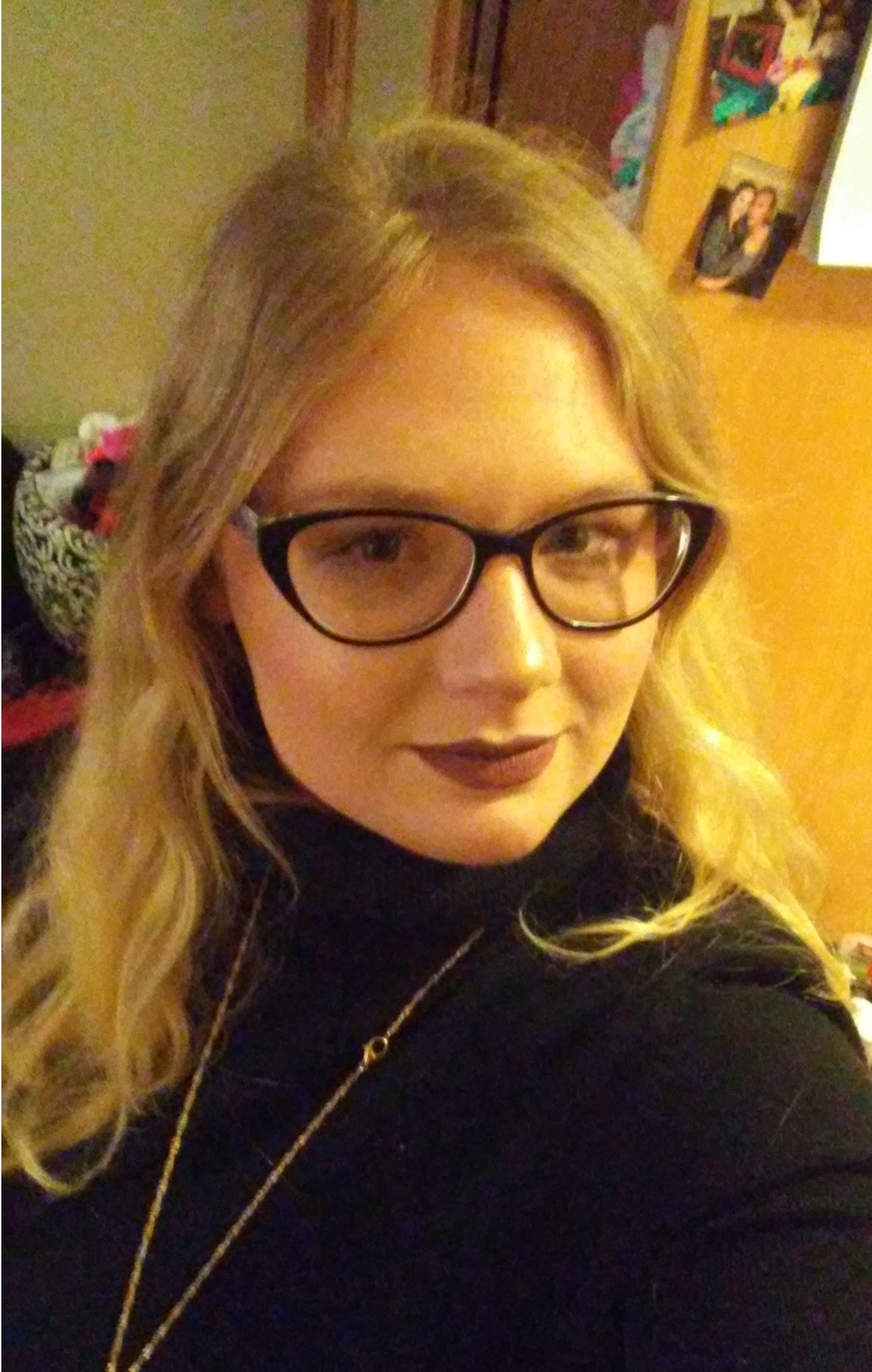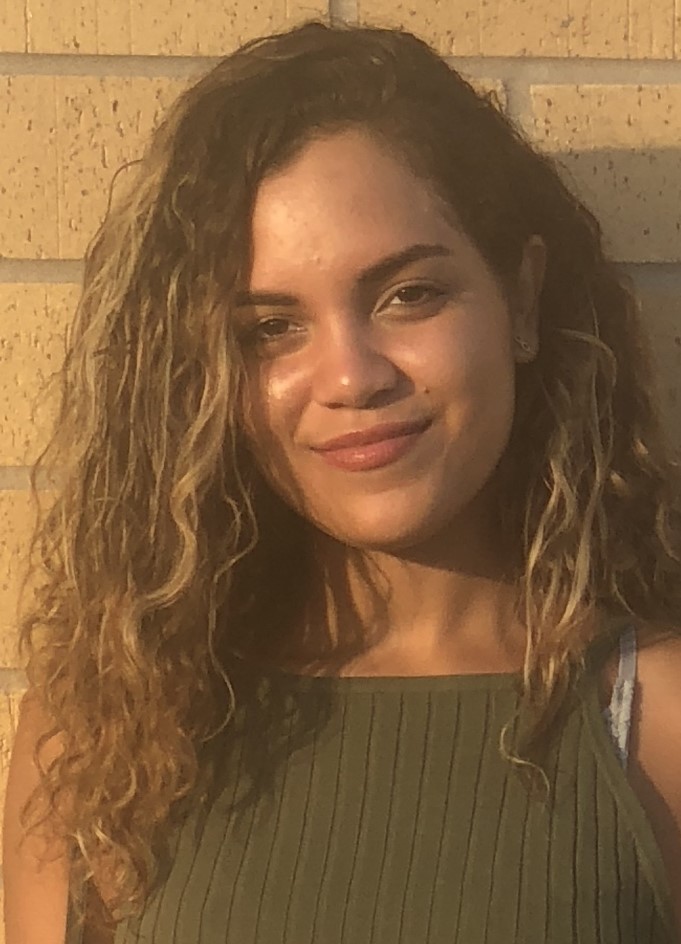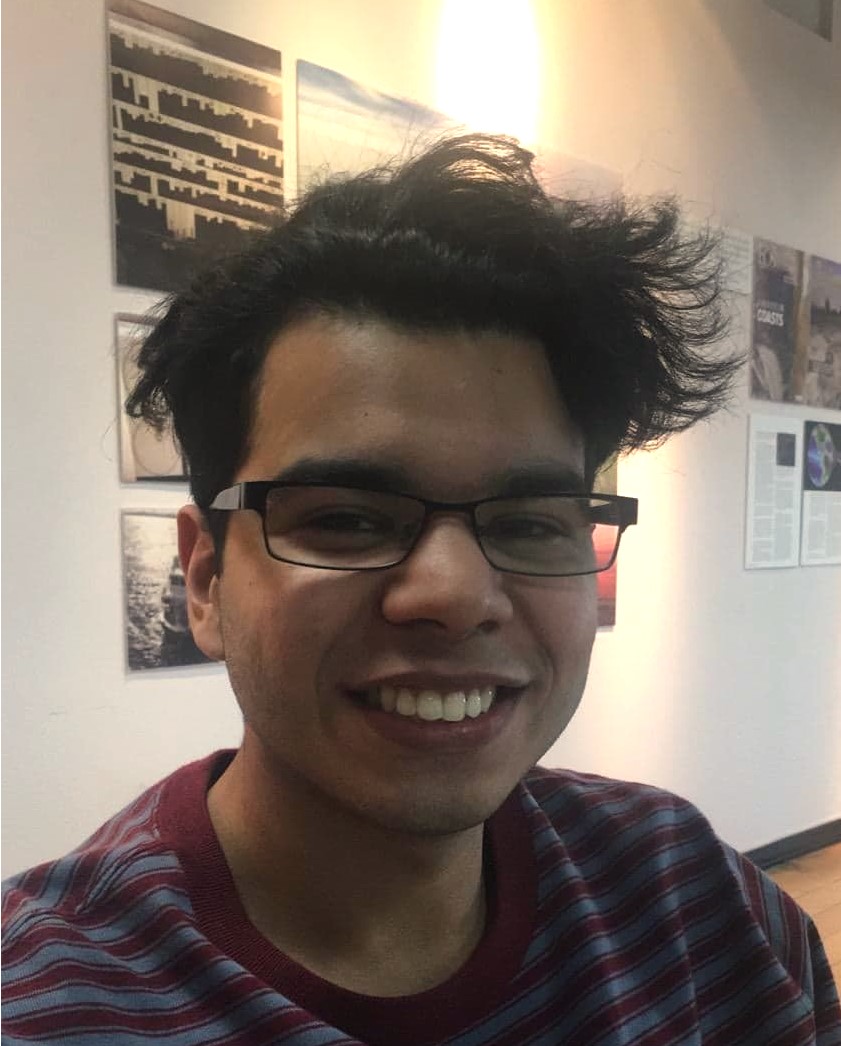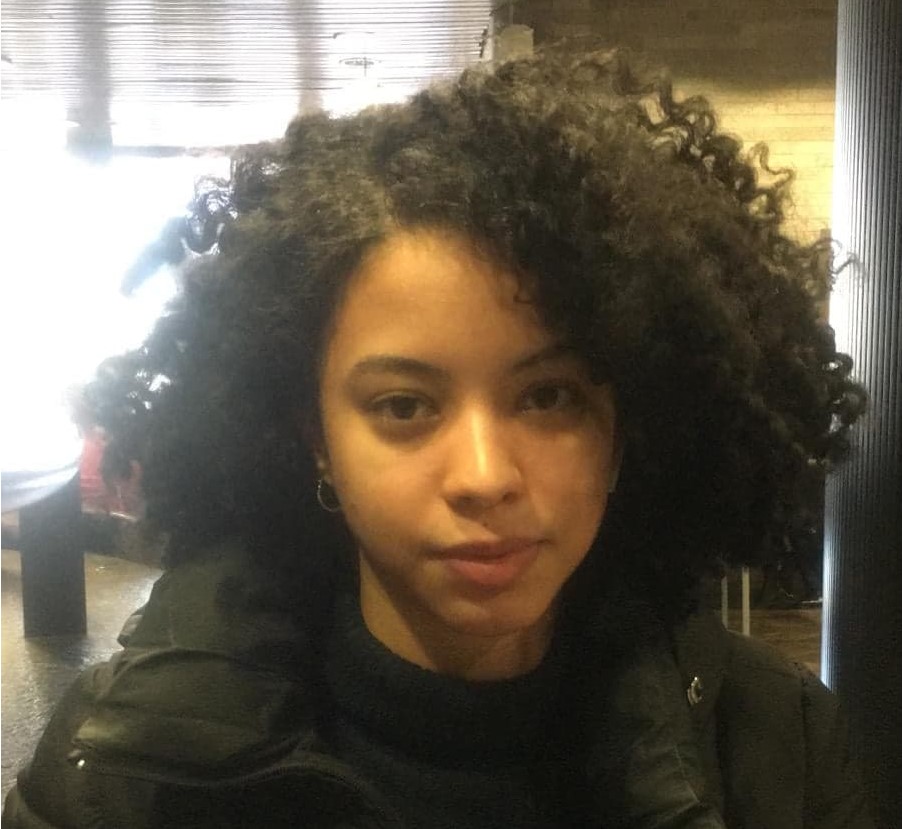Posts Tagged ‘job’


I’m a Professional Writing major with a minor in Anthropology, and this is my fifth year here at SUNY Cortland. I’m planning to go to grad school after this to study Anthropology and Political Science. Right now, I take out private loans. I think I got the Pell Grant for about a semester, and it was only like $50. I don’t receive TAP, and I couldn’t even qualify for the Excelsior Scholarship.
I’m a student director in one of the campus buildings, and I also pick up shifts at Auxiliary Services as a floater. So I’ll wash dishes or cook chicken on the grill for six hours straight. In general, I work anywhere between 12 to 25 hours a week. I’m always looking for more work because I don’t get any money for rent or food, and that takes away from study time and homework.
I applied for food stamps, but I wasn’t eligible because I didn’t work enough to qualify. They don’t take into consideration that I’m also a full-time student. I’m already a year late to graduate, but I’ll be on track to graduate this year. If it wasn’t for working so much, I’m sure I would’ve graduated on time for my degree. We need a fully-funded SUNY so people like me can graduate on time and not have to worry about going to grad school because of all the private loans they’ve already taken out. I’m walking away from undergraduate degree with almost $100,000 worth of student debt. And that’s from a state school. I’ve already started paying those loans off for three years already. That’s another thing I pay for with work, besides car insurance, my car payment, internet, electricity, rent, food, and textbooks.
I don’t pay more than $300 a semester in books. If a semester cost me more than 300 bucks in textbooks, I would weigh which books are more valuable and get rid of the other ones. There are also some classes that require fees in order to take them. I took art for three semesters, and that was $200 for each course each time, totaling $600. And that doesn’t even cover materials. It covered studio space and workshop equipment.
My biggest challenge as a SUNY student has been finances. I worry more about my finances than I do about passing each class. I know I’m at a major disadvantage in class because I have to work so much more just to make sure that I have a roof over my head while I’m in school, or just to make sure the internet doesn’t cut off so that we can finish our homework. I think if we had a much lower tuition or if there were less hurtles to have to jump through for a student like me, then I might be able to not be in as much debt, and then I would be able to go to grad school without the fear of not just getting rejected, but also of it not being paid for.


I’m a sophomore at SUNY Cortland. I study psychology, and I’m working toward a minor in Spanish. After I graduate, I’m going to grad school for my Master’s and PHD in psychology, probably somewhere in New York City– by home. I currently get financial aid, TAP, and the Pell Grant, but even with that I still take out loans, and my parents pay a little bit to help too.
I don’t work during the school year, but at home I work at the YMCA, and between the money I get from that and babysitting, I can pay for my textbooks. If I didn’t get financial aid I’d probably be in a CUNY school instead of at SUNY Cortland, so that I was closer to home and it’d be less expensive. I wanted to go to SUNY because I wanted to get out of the city for awhile. There are so many problems that SUNY and CUNY students have to face right now, but just one of them is transportation to and from school and home. That’s expensive, and I feel like that should be provided. We need a fully funded SUNY and CUNY so that everybody has the opportunity to get a degree no matter what financial circumstances they’re in.


I’m a Teaching English to Speakers of Other Languages (TESOL) major at SUNY Cortland, but before that I was an Adolescent Education major. I’m kind of a “super duper senior” because I graduated more than 2 years ago with a B.A. in English, which makes me a non-traditional student.
I have two plans that I could go for after graduating. I could get my master’s here at Cortland and then go to New York City to teach, or the second plan is basically going abroad and teaching. I pay for college with loans and work. I used to receive TAP and the Pell Grant when I was initially going to college, but I don’t receive them anymore.
I work part-time at Walmart, roughly 20 hours a week. Last year I worked full-time and could barely balance my workload between classes and work. This year it’s a lot easier to balance the workload. I get my textbooks through the inter-library loan, which is awesome because you don’t have to pay a million dollars for books. I use whatever money I have leftover from work for food, even though right now I don’t have a lot of money for that, either. I was going to apply for SNAP, but I heard that college kids aren’t always eligible.
Even if I didn’t receive financial aid for college I would still go, considering that’s what I’ve been doing for the past couple of years, but I am concerned about graduating on time. Some of the classes I need to take actually conflict with other classes I need, which means I have to push my graduation date out a year, essentially. I think SUNY/CUNY should be free because I think that students shouldn’t have to worry about scraping together money for college when they should be trying to perform better in classes.


I’m finishing up my last year at Cortland in Professional Writing and English, and I’m getting ready to apply to Emerson to get a Master’s in Publishing in Boston. I’ve been so lucky. My grandfather died a few years ago and left his grandchildren a good sum of money for our education. I still have two jobs so that I can pay for food and books and stuff. My mother doesn’t help me with school at all. But I’m still lucky that I don’t have to worry about loans for tuition.
I see all my friends around me not as well off as I am. I’ve been blessed. I see people with 80 thousand dollars in debt. Even the new Excelsior Scholarship doesn’t cover everyone. I know a lot of people in debt that just don’t qualify. Although I’m not worried about money, I am worried about my career path after school. My major doesn’t have a set path, like some others do. Entry-level positions aren’t actually entry-level. I have to mold everything I’ve done in college as experience even though it isn’t technically professional, which is what jobs are looking for. The cycle of no experience leads employers having to take a chance on students.
More internships on campus would really help people like me. Remote internships just aren’t the same. We need more on-site internships, and we really need to encourage more professors to take on research assistants and interns. Without that experience we can’t get jobs. Without jobs, we’ll never be able to begin paying off all this student debt.


I am finishing my final year as a Teaching English as a Second Language major with a minor in Spanish. After Cortland I plan on moving back to Columbia to be an English professor.
I do receive some financial help from the Pell Grant, but I still have to work year-round to cover the other expenses, like all of the textbooks I need for my classes. I typically work full-time in the summer months, and I also work at Neubig Dining Hall between classes to get by. As far as food goes, I do have a meal plan that I have to pay for out- of pocket, but I also work in one of the dining halls so I’m not a big fan of working around the same food I have to eat.


I am currently in my final year at SUNY Cortland as a Spanish and Teaching English as a Second Language double major. The only financial aid I qualify for is like $50 from TAP, which really doesn’t cover anything. In the summer, I work full-time as a secretary to help cover my college expenses, like room and board and tuition.
I don’t have time during the school year to work because of how demanding my majors are. Also, I have to drive myself to and from my observation hours. That can get really expensive, but I still have to pay for that out of pocket on top of everything else.
I have a meal plan but the food and the hours for dining halls are so ridiculous that I normally eat off campus, not to mention the food on campus is more expensive than off-campus food! I think we need to have fully funded SUNY so we don’t have debt until we die and won’t affect our credit scores for the future when we really need them.


I am a double major: Sociology with a concentration in Criminology and Women’s Gender and Sexuality Studies. As a senior at SUNY New Paltz, I’m not yet sure what I will be doing after graduation. I will likely be moving back home with my parents and working on Long Island in order to save money and plan for the future. I am paying for school through loans. I work about 34 hours a week between my two paid jobs. I also have an unpaid internship. Although I have worked throughout all four years of college, it is likely that I will have very little saved upon graduation as I have to spend my money on costs like groceries and rent. I pay for books myself or share the cost/book with a classmate.
If I did not receive financial aid, I would be taking out more loans and therefore graduate with even worse debt than I will already be facing. Since I am a transfer student, a large sum of credits from my former university were not accepted at SUNY New Paltz. I did not think I would be able to graduate on time but am doing so by taking 18-credit course loads and enrolling in summer and winter classes that are not covered by financial aid.
We need fully funded SUNY and CUNY because education should be treated as a right, not a privilege. It is unacceptable that cuts are being made to opportunity programs that assist students who need the most support. More than that, it is disheartening that students like myself have to work multiple jobs on top of taking classes and being involved in our campus communities. We are over-worked, lack sleep and are sometimes malnourished.
Although I am extraordinarily busy, I make time for NYPIRG in order to advocate for things like fully-funded higher education and voter rights with the hope that generations to come don’t have to face the same struggles as myself and many of my peers. My story is not unique and absolutely not the worst of the pack. There are students who are responsible for going to school, paying for their livelihood (rent, groceries, medicine, etc.) who are also responsible for supporting their families at home, whether it be parents, siblings or children. Fully-funded SUNY and CUNY would alleviate the stressors that cause many students to drop-out of college. They would likely also increase enrollment rates, as money and/or lack of access to financial aid is one of the major reasons people choose not to go to college. Education is a right! And we will continue to fight, fight, fight!


I am currently a freshman majoring in political science and minoring in Urban Studies. After graduation, I plan on going to law school. I pay for tuition through TAP and Pell Grants, and my parents assist me with the costs of textbooks. TAP only covers four years of financial aid, so I must take fifteen credits per semester to graduate on time. If TAP would cover summer and winter courses then it would lighten my load over the fall and spring semesters. Along with being a full time college student, I also work part time to financially assist my family. It is nearly impossible to make college my first priority when I feel overwhelmed with the overload of credits and working.
CUNY and SUNY should be fully funded, so that specifically my two siblings will not have to feel pressured to work in order to afford college. In terms of my college experience, CUNY needs to be better funded. I had difficulty registering for a calculus class which I needed to fulfill a core requirement.
Additionally, finding an academic adviser who will be able to give me accurate advice is very hard. At the beginning of my Freshman year, I had a question regarding financial aid. One adviser gave me inaccurate advice which almost caused me to lose my financial aid due to the fact, that there are not enough advisers for the amount of students. She had to rush when giving me advice in order to make time for the long line of students waiting to be advised. This budget deficit at CUNY could have had detrimental effects on my college career.


I am a junior studying Biology and plan to go to veterinary school. I receive TAP and the Pell Grant.
I also have a job which pays for my textbooks and food.
I used to get a refund check from financial aid that helped but I no longer get that. If I didn’t receive financial aid I probably wouldn’t be in school.


I am a senior majoring in Physiology and minoring in Latin Studies. I’m graduating in May. I plan on getting a job in politics after college so I have a couple of internships with legislators in my community. I am a SEEK student so I get some help from financial aid. I receive the Pell Grant and work here at school as a tutor. I pay for textbooks and food with that money.
Without financial aid I would not be in school. Last year I was concerned with tuition being raised that I would have to take out a loan but I managed my classes so that my financial aid didn’t run out. A lot of things in high school I took for granted. Like for instance, in high school, you get a metro card provided and don’t have to pay $130 every month. Textbooks are very expensive in college and even if you rent them they cost a lot of money. It’s hard trying to maintain a decent lifestyle like trying to eat healthy and those things while being in school full time or part time. I often still do not have enough money to eat.
A fully funded CUNY would give a lot of opportunity to people who can’t afford it who maybe didn’t have any kind of financial aid programs. Without financial aid a lot of us wouldn’t even be here today.




